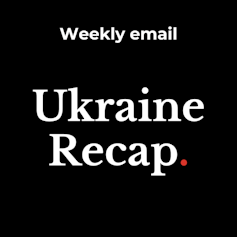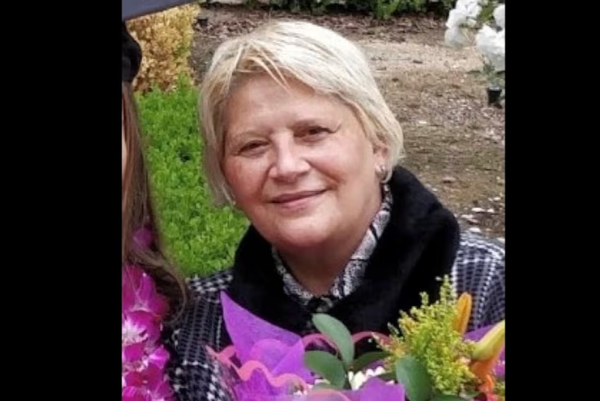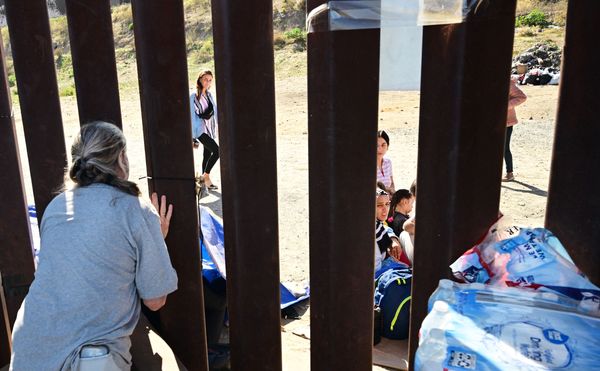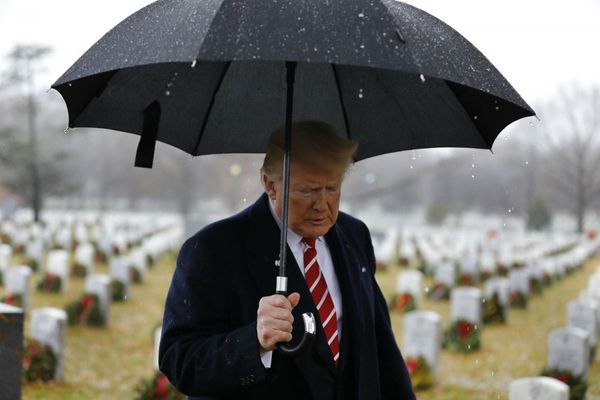As the war approaches the one-month mark, this week a lot of the thinking has shifted to how negotiations might bring the violence to an end. As western leaders gather in Brussels to discuss what might be done to pressure Russian leader Vladimir Putin to call a halt to hostilities, negotiators from Ukraine and Russia continue to meet, and there have been some reports of progress.
But still the killing continues, and it’s hard to think how the two sides can get any closer round the negotiating table while the Russian military continues to bombard civilians in many of the large cities. Amelia Hadfield, an expert in Russian politics, considers what game theory might tell us about how negotiations might proceed.
Read more: Ukraine war: what game theory can tell us about how negotiations might go
The Ukrainian president, Volodymyr Zelensky, has called on Putin to meet him for one-on-one talks. The Kremlin has indicated its willingness for the two leaders to get together but only after the text of an agreement had been inked in and signed by the foreign ministers of both countries. Zelensky has eyeballed Putin before and will be aware of the kind of man his opponent is.
Psychologists Magnus Linden and George Wilkes have studied Putin’s “dark personality” and have given us a rundown on the sort of man who brought a big dog into talks with the former German chancellor, Angela Merkel – who famously hates dogs.
A lot of labels have been used in association with the Russian leader and his regime: revolutionary, totalitarian and fascist to use but three. But language is key to understanding, and Richard Shorten, an expert in political theory, has parsed all these labels and tells us Putin is in fact a reactionary tyrant.
Read more: Putin's not a fascist, totalitarian or revolutionary – he's a reactionary tyrant

This is our weekly recap of expert analysis of the Ukraine conflict.
The Conversation, a not-for-profit news group, works with a wide range of academics across its global network to produce evidence-based analysis. Get these recaps in your inbox every Thursday. Subscribe here.
Bogged down
Meanwhile, the war isn’t progressing as Putin would have planned. As we noted last week, the lightning advance in Ukraine prompting Kyiv’s capitulation failed to materialise. Instead, Russian troops have become bogged down and have adopted attritional siege tactics, using airstrikes and artillery to reduce some cities to rubble.
In the process, Russia is incurring a lot of casualties, including – incredible as it might sound – five generals, according to Ukrainian reports. Jonathan Jackson reports that, despite attempts at reform, Russia’s military remains inefficient and corrupt. The presence of generals on the front line is affording Ukrainian snipers opportunities to strike at some of their enemies’ most senior officers.
Read more: Ukraine war: why are so many Russian generals being killed?
Things have apparently become so bad that there is speculation that Putin is putting pressure on Belarus to enter the war to support Russia. There’s little doubt that Belarus president, Alexandr Lukashenko, is more than responsive to Putin’s will. But sending his troops into Ukraine would leave Lukashenko dangerously exposed at home, write Stefan Wolff and Anastasiya Bayok
Zelensky, meanwhile, continues to implore Nato leaders to do more to help. Yet still they resist, arguing that the dangers of the war in Ukraine escalating to a bigger conflict involving Europe and the US are too great.
The risk is already high. Last week Russian shells struck a military base just a few kilometres from the Polish border, and Putin has said he considers convoys supplying arms and equipment to Ukrainian forces from Nato countries to be fair game. Kenton White, who has researched Nato politics, tells us that there are also differing opinions within Nato as to how different countries might react to an attack on an ally.
Read more: Ukraine: what might happen if the war spreads to a Nato country
Butcher’s bill
Every day brings a fresh butcher’s bill. Many of those paying the price are civilians either trying to escape to safety or trapped in cities under fire. Russia steadfastly refuses to admit targeting civilians in Ukraine, but this was very much part of its playbook after Putin intervened in Syria in 2015, says Lily Hamourtziadou, an expert on the death toll of war who runs the Iraq Body Count site monitoring civilian deaths there. She also says the US has often been less than candid about the civilian casualties of its military interventions, instead coining the euphemism “collateral damage”.
Read more: Ukraine war: how Russian denial of civilian casualties follows tactics used in Syria
Another group of people under daily threat from the Russian violence are the aid workers who are trying to help the trapped civilians. There’s a depressing irony that some of the most endangered people in modern wars are the humanitarian workers who are committed to neutrality, impartiality and independence and are supposed to be protected under international law, writes William Plowright, an expert in humanitarian operations in conflict zones.
Read more: Ukraine: aid workers were forced out of Syria – the same thing could happen in this war
War’s other victims
While human lives are clearly the most important currency being expended in this illegal war, spare a thought for the animals in Ukraine’s zoos, whose terror at the constant bombardment would be made far worse by their lack of understanding. Samantha Ward has researched the fate of animals in other conflicts and tells us that while London zoo survived two world wars, the trauma being suffered by Ukraine’s zoo animals must be enormous.
Read more: Ukraine's zoos: what is happening to all the animals
Zoos aside, Putin’s war machine is destroying much of Ukraine’s cultural heritage – an unimaginable tragedy for posterity. One safe haven so far has been the city of Lviv in the far west of the country. But the war steadily approaches and there are fears that soon the bombs will rain down on this beautiful city, which historian Christopher Mick describes as an ethnic and cultural melting pot and looked on as the “soul of Ukraine”.
Read more: 'A central European miracle': why the city of Lviv is so important for Ukraine
Ukraine Recap is available as a weekly email newsletter. Click here to get our recaps directly in your inbox.
This article was originally published on The Conversation. Read the original article.







